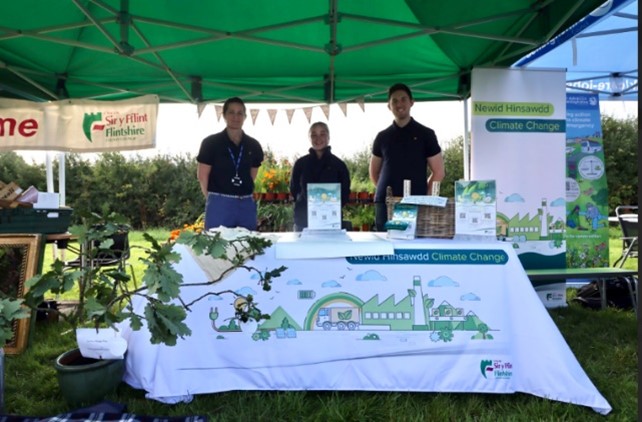Climate Change Newsletter Edition 6
How can we better manage our waste?
While it is really important for us to recycle what we can, there are other things that we can do first to reduce the amount of waste we produce in the first place. We can do this by looking at what we are throwing away and seeing if there are alternative things we can do.
The first thing we can do is waste prevention. This is the best waste management option as it prevents waste being made in the first place. This might include buying items such as fruit and veg loose so that we do not have plastic packaging to throw away, or instead of buying lunch in pre-packaged containers we could take a lunch box with homemade sandwiches/salad/etc.
Re – use is the next best option for waste. We have tried to prevent having the waste in the first place, but there are some things that only come in packaging. Can we re-use products that are not yet waste for the same purpose they were created for? For example, reusable takeaway containers, drinks bottles, detergent/cleaning bottles that can be refilled at refill stations.
Recycling is the final step. We cannot prevent the waste, we cannot re-use the waste, so can we recycle the waste? There are a wide range of items now that can be recycled, from the standard paper, plastic, cans and glass, to much wider items. Once we have separated them and they have been collected for recycling, these items can be broken down and reused for other purposes.
How does reducing our waste help the planet?
Waste reduction is important because there is a limited number of resources in the world. Reusing and recycling helps to reduce the need for new natural resources such as fossil fuels which contribute to climate change. For example, when you recycle paper, for every tonne, 17 trees and 50% of water can be saved. As trees absorb carbon, the more trees the more carbon we can absorb!
Recycling has the potential to reduce carbon emissions by the equivalent of 10.4-11.2Gt of carbon dioxide emissions between 2020-2050. This is only an estimate, but it shows how important recycling can be in tackling carbon emissions.
If you are unsure of what can and can’t be put in your recycling bins, we have a page dedicated to inform you on what can and can’t be recycled. Or for any more information and guidance have a browse on the Wales recycles website.
Recycling Week – 16 – 22 October 2023.
The focus of this year’s recycling week is “Missed capture” which is creating the conversation on the items which normally are not recycled but can be. These are items which are commonly found in your household such as detergent cleaning bottles; aerosols; foil and plastic toiletries/shampoo bottles. All of these can be accepted in your kerbside recycling collection. You can find out more information and how to get involved in recycle week here. If there isn’t any local events in your area try out the local litter picking hubs and collect some litter around your local area.
Did you know?
Our Climate Change Team recently went to the Denbigh & Flint Show where they encouraged the whole family to get involved in discussions about climate change. Children were able to make pledges on ways they would like to help the planet and were rewarded with wooden ‘climate champion’ medals, which were hand made by the climate change team.
We were able to engage with many residents from Flintshire and surrounding areas in the Denbigh & Flint show but would value your opinions on the work we are doing on climate change. If you have any feedback from what you have seen in the E-newsletters or on our webpage you can email us climatechange@flintshire.gov.uk

CO2 emission reductions within the council.
The council have been working hard to reduce their carbon emissions over the years and the Climate Change strategy and action plan was adopted by Council in February 2022. The plan is split into 5 themes: buildings; procurement; land use; behaviour; mobility and transport. From April 2021 to March 2022 there were decreases in our emissions in buildings, and mobility and transport in comparison to our baseline year of 2018/19. You can view the full annual progress report online.
Continuous work on Council owned buildings and assets for energy efficiency has led to a 3% decrease in heating from buildings, 37% decrease in electricity from buildings and a 44% decrease in electricity in street lighting. Some work that has been done includes LED upgrades; improved insulation; and BMS (Building Management System) which helps to improve the management of energy. We are still continually investing in solar PV which has been featured in one of our previous newsletters. Overall, the carbon emissions from our Buildings in 2021/2022 were 8,543 tCO2e which is a 13% reduction from our 2018/19 baseline.
Following the pandemic and the uptake of hybrid working by many employees, as well as many meetings and conferences now taking place virtually instead of travelling to location, we continue to see a decrease in employee commuting/business travel. We have also been utilising route efficiency technology for our fleet to minimise unnecessary travel. This has reduced our carbon emissions for mobility and transport. There was a 51% decrease in business travel, 11% decrease in employee commuting and a 15% decrease in our fleet (Waste vehicles, cleaning vehicles, vans, etc). Overall, the carbon emissions from mobility & transport in 2021/2022 were 5,504 tCO2e which is a 16% reduction from our 2018/19 baseline.

This Month!
Beach clean-up – 15 – 24 September 2023.
The Marine Conservation society work to clean up beaches all around the UK. Their main event the ‘Great British Beach Clean’ encourages people to get involved. The litter data which they collect helps to drive conservation work and aids campaigns for change. The positive impacts that they have achieved are the introduction of the plastic bag charge, banning microplastics in personal care and supporting a tax on single use plastics. If there isn’t a local event taking place for the beach clean-up in your area try out the local litter picking hubs and collect some litter around your local beach.

How does the ocean link to Climate Change?
The ocean is the biggest carbon sink on the planet absorbing excess energy and heat which is released from rising greenhouse gas emissions trapped in the earth. The ocean has absorbed about 90% of the heat which is generated by these rising emissions. This results in sea-level rise, marine heatwaves, and ocean acidification, which affects the ocean’s ecosystem.
https://drawdown.org/solutions/recycling